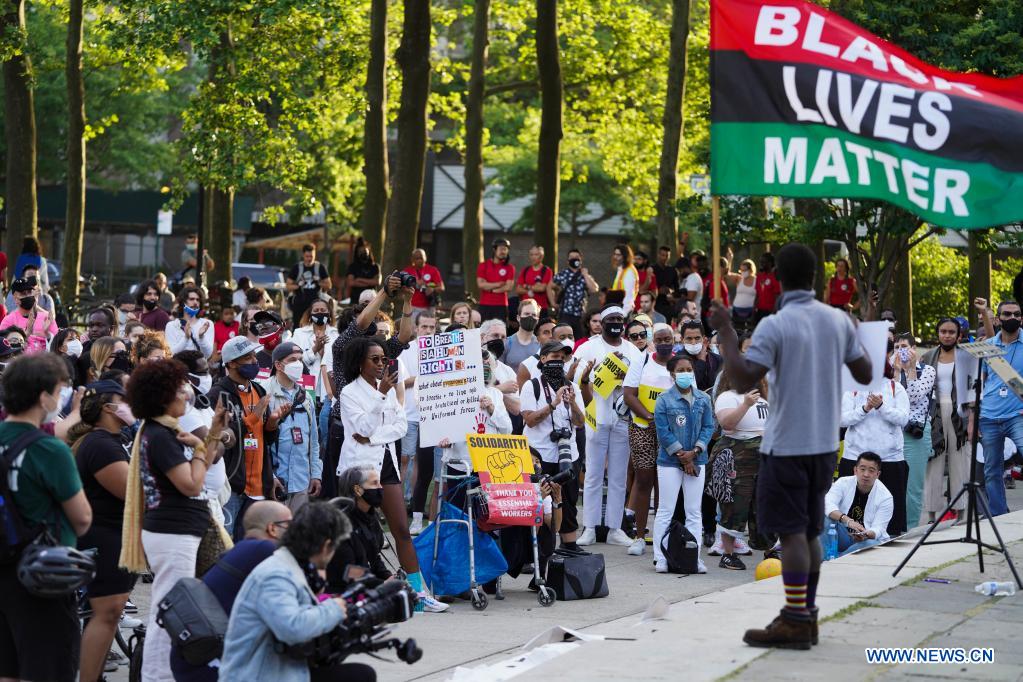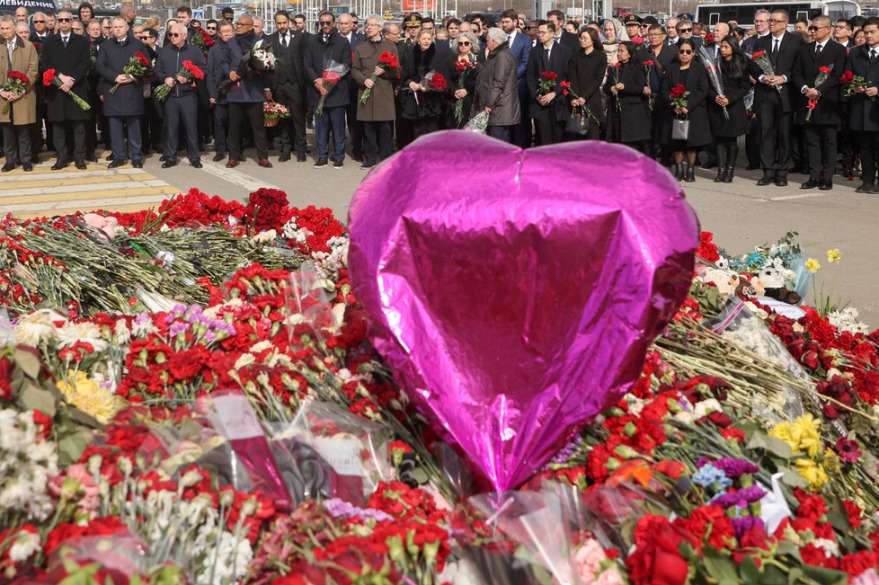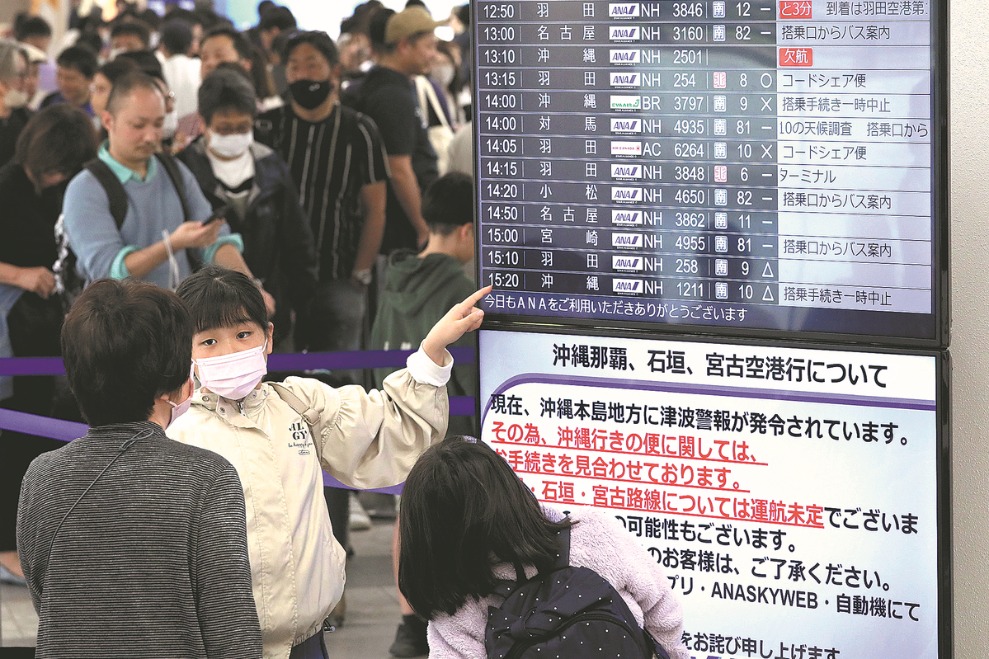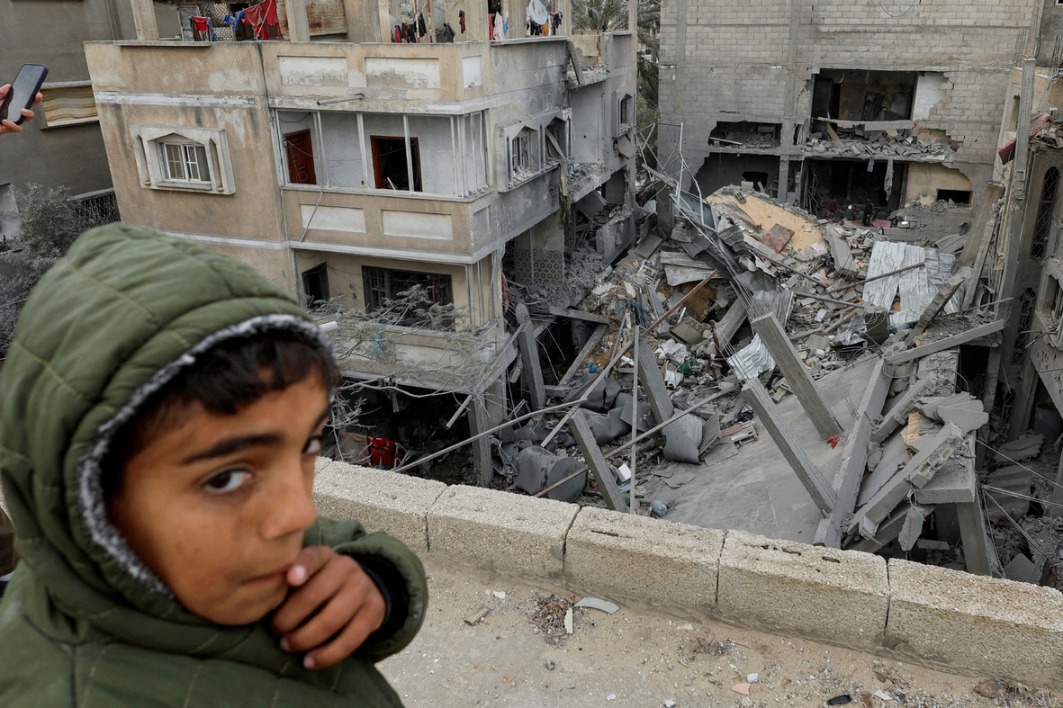US looks at race relations 2 years after Floyd's death
By AI HEPING in New York | China Daily Global | Updated: 2022-05-23 09:18

Justice Department to release $5m for hotlines to report hate crimes
On the streets of the Third Ward, a historically black and culturally rich enclave on the south side of Houston, the 6-foot-6 George Floyd was an athletic legend in his twenties.
On a street in Minneapolis, on May 25, 2020, his life would end at the age of 46 after a white police officer handcuffed him, pinned him to the ground and dug his knee into his neck for what prosecutors said was a total of 9 minutes and 29 seconds.
"I can't breathe," Floyd's last words, captured on widely seen cellphone video by a teenage bystander, became a rallying cry for those seeking justice in his name across the country and the world.
Long-simmering racial tensions would boil over after Floyd's death as cries of "Black Lives Matter "rang throughout the country from California to blocks from the White House in the biggest protests against racial injustice in the United States in decades.
Protesters of all ages and races took to the streets in more than 100 cities. Peaceful marchers were joined in some places by police. But many mass gatherings quickly yielded to violence. Buildings were vandalized and looted. Police cars were set on fire. Curfews were put in place in at least 40 cities and National Guard troops were deployed to restore order in at least 21 states.
Now, two years after the death of George Perry Floyd-when his then 6-year-old daughter said, "My daddy changed the world"-the country and the world look at what has changed.
Floyd's murder forced a reexamination of racism and policing in the US. A renewal in the racial justice movement has touched virtually every sector of society, from policing and politics to business, the arts, education and much more.
But one pattern has remained consistent since the FBI began tracking and reporting hate crime in 1991-black Americans have been its most frequent victims.
In 2020, the most recent year for FBI nationwide hate crime data, 2,871 black Americans became victims of hate crimes, nearly 35 percent of all hate crime reported to the FBI that year amid the COVID-19 pandemic and social justice protests.
Attorney General Merrick Garland said on May 20 that the Justice Department will release $5 million for states to establish hotlines to report hate crime as a mass shooting on May 14 at a supermarket in Buffalo, New York, heightened concerns about racially motivated violence.
Authorities are continuing to investigate the possibility of hate crime and terrorism charges in the shooting deaths of 10 people, all of them black, at the Tops Friendly Market in a predominantly black neighborhood in Buffalo, New York. The dead included six women and four men ranging in age from 32 to 86 years old. Officials said one of three wounded victims was black, and the two others were white.
Payton Gendron, an 18-year-old white man, was indicted on murder charges in the shooting.
"I think that we do need to acknowledge that this will be a bittersweet memorial for George Floyd because things haven't changed very much from our (African American) point of view," said Reiland Rabaka, a professor of African, African American, and Caribbean Studies and the founding director of the Center for African and African American Studies at the University of Colorado in Boulder. "I believe some things have changed, and then some things, obviously, considering what happened in Buffalo, they obviously have not."
"It sort of goes in cycles where we have these murders of African Americans and people are outraged. There's a lot of talk of changing the system. After a while, things settle down and it goes right back to the way it was," he told China Daily in an interview.
"I think that over time, African Americans have been relegated to a category where we are second class citizens, where we are not considered fully Americans. And, as a consequence, people really treat us quite badly."
Derek Chauvin, the police officer who put his knee on Floyd's neck, pleaded guilty last year to a federal charge of violating Floyd's civil rights and faces a federal prison sentence ranging from 20 to 25 years. Chauvin earlier was convicted on state charges of murder and manslaughter and sentenced to 22 1/2 years in prison.
Three other former Minneapolis police officers were charged in Floyd's death. Thomas Lane pleaded guilty Wednesday to a state charge of aiding and abetting second-degree manslaughter. Lane, along with J. Alexander Kueng and Tou Thao, had been convicted on federal counts of willfully violating Floyd's rights during the May 2020 restraint that led to his death.
Minlu Zhang in New York contributed to this story.
























